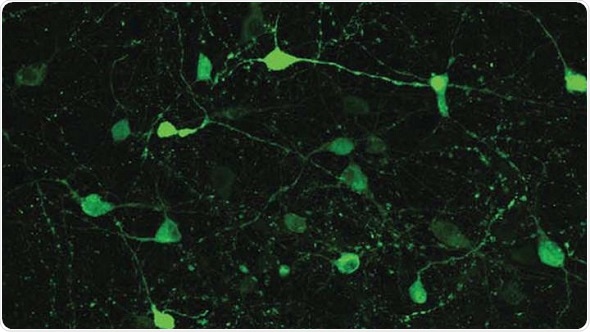A newly identified hunger pathway in the brain can quickly modify food intake in the presence of food, according to a study of mice published in JNeurosci. This pathway could be a future target for the treatment of eating disorders.

Fluorescent calcium imaging of neurons in the hypothalamus. Credit: Andrew Rau et al., JNeurosci 2019
Food intake is modified by long-term signals such as hormones and molecules released during digestion, but a newly recognized circuit in the hypothalamus can change feeding behavior on a shorter timescale. Using fluorescent calcium imaging and electrophysiological recording, Shane Hentges and Andrew Rau at Colorado State University identified a pathway in the hypothalamus that affects food intake and body weight through release of the neurotransmitter GABA, which can occur due to the detection, rather than consumption, of food.
The researchers found that food-deprived mice exhibited more GABA-related neuron activity, indicating that temporary energy states can directly affect feeding behavior. The knowledge of this pathway improves our understanding of how the brain controls energy balance.
Source:
Journal reference:
Rau, A.R & Hentges, S.T (2019) GABAergic inputs to POMC neurons originating from the dorsomedial hypothalamus are regulated by energy state. Journal of Neuroscience. doi.org/10.1523/JNEUROSCI.3193-18.2019.